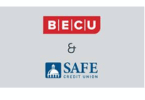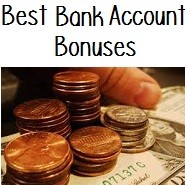With the recent hikes in interest rates resulting in higher yields on savings accounts, finding the best account to park cash has real dollar value. We typically focus on traditional FDIC-insured high yield savings accounts or CDs, and we’ve also explored alternatives like I Bonds, EE Bonds, Brokered CDs, and CD Annuities.
Today, at the nudging of reader Jason, we’ll do a write-up on brokerage money market funds and bond funds as a high-yield savings account alternative. I’m sure many of you are familiar with the information contained below; this write up is a novice guide for those who aren’t.
For future article context: this was originally posted on 8/18/22 when the best yielding savings accounts are earning in the 2.00%-2.50% range.
Contents
Money Market & Bond Funds
Alongside individual stocks and mutual funds, brokerage platforms also sell money market funds and bond funds. Whereas a typical mutual fund amalgamates various stocks in a single fund (e.g. the S&P 500), money market funds and bond funds buy various kinds of bonds which are basically loans to a third party.
A simple money market fund can be comprised almost entirely of US government loans or bonds, making them nearly as secure as an FDIC insured bank account. Other bond funds will have loans to large corporations which is considered relatively safe yet have more risk of default. These might get higher returns as well.
Brokerage money market funds are similar in concept to a savings account: instead of loaning the money to a bank with FDIC insurance, your money pools in a fund which loans the money to some third party. In the case of money market funds or bond funds, the risk level will depend to whom the bond fund is making the loans.
Those funds described as ‘money market funds’ would typically be comprised almost entirely of US treasury loans. Those described as bond funds are often heavy on US treasuries, yet other times they have corporate loans or riskier loans in there as well.
Brokerage Default Funds
By default, many large brokerages put your money into a safe money market fund until the customer uses the funds for other investments. For example, with Vanguard your money sits by default in VMFXX which seems to be earning 2.11% at time of this writing. And with Fidelity your money sits by default in SPAXX money market fund which seems to be earning 1.75% at time of this writing. Fidelity also has their SPRXX which seems to be earning 2.07% at time of this writing. Fidelity also offers robust bank-equivalent services with their cash management account, such as checks and ATM or debit card usage. (Fidelity retirement accounts sit by default in FDRXX.)
Schwab does not sweep funds automatically into a money market fund. You can manually move the money over to such a fund, though. For example, their SWVXX fund seems to be earning 2.16% at the time of this writing.
You can also manually put funds in a money market fund, outside of the default fund. Check this link for a list of Vanguard money market funds, this link for a list of Fidelity money market funds, and this link for a list of Schwab money market funds, and this link (pdf) for Merrill Edge funds.
A good ETF option for money market or short term would be BIL, SGOV, or ICSH. As an ETF, it would be available for purchase with almost any brokerage. Vanguard also has the VUBFX ultra short term fund.
All of these rates will go up and down along with the rise and fall of interest rates in the broader market. Also note, the abovementioned rates already account for the ‘expense ratio’ cost of operating the fund; the ‘SEC yield’ numbers are the actual payout amounts after all expenses.
(On a related note: some brokerages have an option to sweep funds into FDIC insured bank accounts. I believe Robinhood does so, and sweeps funds into accounts earning 1.5% at time of this writing. Vanguard is also piloting such an option, apparently meant for customers who feel more secure with sweeping to an FDIC insured account instead of their highly secure VMFXX fund.)
Bond Fluctuations
Other than the security of the loans, the other another pertinent factor for bond funds is the price fluctuation. To keep it simple: bonds, especially longer term bonds, can have some amount of price fluctuation, even if the underlying asset is something entirely secure like U.S. treasuries.
Thus, you’ll see bond funds with descriptions such as: ‘long term bond funds’ ‘intermediate term bond funds’, ‘short term bond funds’. The former carries more risk for someone who may need the money soon. While the bonds themselves can be very secure, their underlying value in the market might fluctuate. That matters if you want to sell your bond shares and cash out.
Someone looking for a fund that’s comparable to a traditional savings account would be looking for something described as ‘money market funds’ which are meant to have the least amount of price fluctuations and can function similar to a traditional savings account. ‘Short term bond funds’ or ‘ultra short term bond funds’ can be fairly similar to money market funds as well, albeit with some amount of fluctuation. Whereas money market funds attempt to avoid completely fluctuations in its core value. (Examples of money market funds can be found earlier in this post.)
Pros & Cons
Pros of money market and bond funds:
- Funds sitting in your brokerage account waiting to be invested can earn some ‘interest’ or dividends, as it’s called.
- If the rates are earning more than traditional savings accounts you can leave the funds in the brokerage money market account as an alternative savings account.
- Brokerage bonuses are often lucrative, yet have high deposit requirements. Money market or bond funds give an additional way of meeting those requirements.
- There are select bond funds, called municipal bond funds, which are mostly exempt from paying federal taxes on their ‘interest’/dividends. These funds lend to states and municipalities which are often exempt from federal taxes. (Examples of such funds are VMSXX for money market or SUB & VWSTX, for short term. There are also similar intermediate and long term tax exempt bond funds, such as MUB, VTEB, VWLTX.) Some of these are even mostly exempt from state taxes. (California examples: VCAIX, VCITX; there are similar funds for other states.) Depending on your federal and state tax brackets, these funds can often make sense due to their tax savings, even if they’re earning less than their counterparts.
- You can invest in a money market fund which is made up entirely of U.S. Treasuries – the safest investment available – and is exempt from state and local taxes. Not exempt from federal taxes. Vanguard has VUSXX, for example. (We expanded on this in a dedicated article here.)
Cons of money market or bond funds:
- Can be less secure compared to an FDIC-insured bank account.
- Rates can sometimes be lower than those of top savings accounts or CDs.
Wrap Up
In short, you can use a money market mutual fund or ETF – within a brokerage account such as Schwab, Fidelity, or Vanguard – as an alternative to the traditional bank savings or money market account. ‘Short term’ or ‘Ultra short term’ bond funds can also be good alternatives with similar or better interest yield (“dividends”), but those can be a little less steady in value. Intermediate or long term bond funds are also good options for their yield; however, those make more sense for parking long term cash due to their price fluctuations and the possibility of loss to their base value in the short term.
We went light on details in this post so as not to lose the beginner. Please let us know if you find these kinds of posts useful. I hope to do a post on U.S. Treasury bills (T-Bills) in the future as well.
Related Posts:






